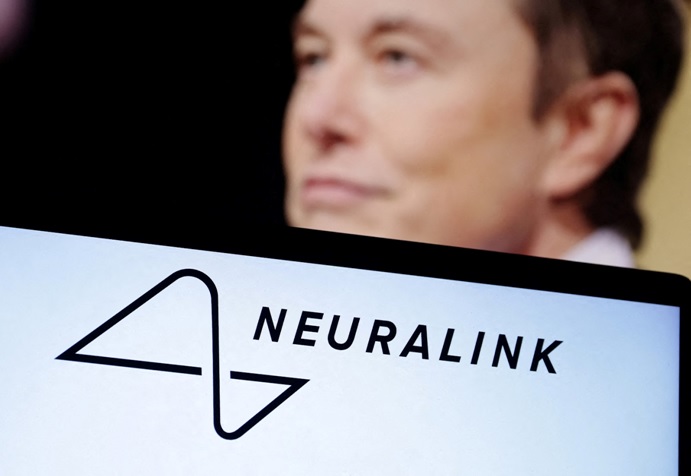Technology
Neuralink Implants Brain Chip in First Human, Elon Musk Announces Promising Results

Highlights
- Neuralink, Elon Musk’s company, has implanted its brain chip in a human.
- Elon Musk shared positive news on social media, stating promising results in detecting neuron spikes.
- The U.S. FDA cleared Neuralink for its first human trial, a crucial milestone for the startup.
- The trial involves a robot surgically placing the implant in the brain region controlling movement intentions.
- Musk announced the first product, “Telepathy,” aiming to enable communication via direct brain-computer interfaces.
- Neuralink faces scrutiny and fines for violating transportation rules, raising concerns about safety protocols.
- Lawmakers requested an SEC investigation into whether Musk misled investors about Neuralink’s safety.
- Veterinary records revealed issues with implants in monkeys, prompting clarification from Musk.
- The ongoing PRIME Study evaluates the safety of Neuralink’s wireless brain-computer interface and surgical robot.
- The successful implantation sparks discussions on the ethical implications of brain-machine interfaces.
A revolutionary brain chip startup marks a significant achievement with its first human clinical trial
Neuralink, the brain chip startup founded by billionaire entrepreneur Elon Musk, made history on Sunday by implanting their brain-computer interface (BCI) successfully into a human patient. Elon confirmed the positive results on social media platform X.
Musk announced in his announcement that initial results have been promising, with successful detection of neuron spikes – activity created by neurons which transmit information via electrical and chemical signals in order to transmit data throughout the brain and body as outlined by the National Institute of Health.
Neuralink secured clearance from the U.S. Food and Drug Administration (FDA) last year to conduct its inaugural human trial, marking a significant step forward in its mission of aiding patients to overcome paralysis and neurological conditions.
Neuralink’s human trial utilizes a sophisticated robot to surgically implant a BCI implant into a specific region of the brain associated with movement intention, giving individuals control of the computer cursor or keyboard exclusively through thought.
Neuralink has highlighted how this BCI implant uses “ultra-fine threads” to transmit signals within participants’ brains – an impressive technological accomplishment.
Elon Musk revealed that Neuralink’s inaugural product would be called Telepathy, symbolizing their goal to revolutionize communication through direct brain-computer interfaces.
Neuralink’s PRIME Study seeks to evaluate the safety of both its wireless brain-computer interface and surgical robot used during implant procedures. Although details about the study were unavailable immediately, Musk’s announcement suggested a positive path forward for it.
However, Neuralink has come under increased scrutiny and controversy due to concerns regarding safety protocols. Recently, it’s been reported that Neuralink faced fines for violating U.S. Department of Transportation rules related to hazardous material transportation.
In late November, four lawmakers submitted a formal request to the U.S. Securities and Exchange Commission that Elon Musk misled investors regarding the safety of his Neuralink technology. This request followed revelations from veterinary records showing problems associated with implanting them into monkeys including paralysis, seizures and brain swelling.
Musk claimed via social media that no monkey had died due to a Neuralink implant and explained how the company purposefully selected “terminal” monkeys in order to reduce risks to healthy ones.
In conclusion, Neuralink’s successful implantation of its brain-computer interface (BCI) in a human marks a significant stride toward the realization of Elon Musk’s vision for direct brain-machine communication. The positive results in detecting neuron spikes and the clearance from the U.S. FDA for the first human trial underscore the potential impact of this groundbreaking technology. However, ongoing scrutiny, safety concerns, and regulatory investigations emphasize the importance of addressing ethical considerations and ensuring the responsible development of neural interface technologies. As Neuralink progresses, the journey toward unlocking the full potential of the human mind continues, with implications reaching far beyond the realm of science fiction.

























































